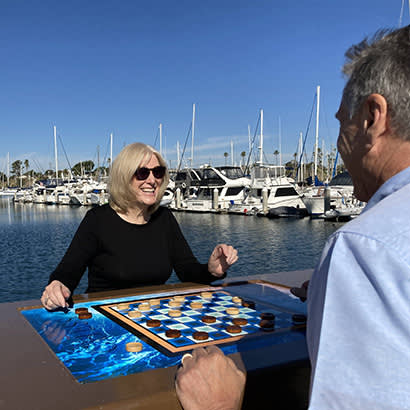
For an enhanced digital experience, read this story in the ezine.
The value of joining NRPA and obtaining CPRP designation
Before purchasing and managing a private marina on the west coast of Florida, I had a career in banking, and prior to that, in private enterprise business. During that time, I was profit driven and had high standards of customer service.
After selling my marina, I transitioned to managing a small city-owned marina on the east coast of Florida. I then was offered an opportunity to manage a large harbor on the southern coast of California. What is interesting about municipal harbors is that they are generally organized as an enterprise business. They are not funded by tax dollars and, as a result, need to be profit driven in order to operate. However, as a publicly-owned business, there are high expectations to support access and recreation to residents and visitors. In “The Golden State,” the entire coastline is regulated by the California Coastal Commission. This agency requires access to the harbor’s resources at low or no cost.
After spending a few months in my position at Oceanside Harbor in San Diego County, I realized our harbor was City of Oceanside’s most active park, even though we are not a designated park. Our property is teeming with walkers, joggers, bikers, kayaks, paddleboards, picnics and sightseers.
This realization prompted me to join NRPA, in order to gain insight into the operation of parks. As a member, I saw the opportunity to further my knowledge by becoming a Certified Park and Recreation Professional. Through NRPA’s monthly magazine, Parks & Recreation, and other NRPA publications and communications, I began to realize the opportunity to create equity and more access for our low-income residents and visitors, and people with disabilities.
One challenge we face is that a significant portion of our revenue must go to maintaining our docks, service buildings, beach, roadways and parking lots. The internal question we ask ourselves is: How do we meet our obligation to maintain the harbor and create more equity in our park-like features? The answer is fairly simple. As we plan projects and routine maintenance, we must design for low- and no-cost features that improve access for all of our visitors and residents.
We learned that integrating equity into our initial design did not cost more. For example, we have a number of concrete picnic tables throughout the harbor that needed to be refinished. These tables included a 2-foot by 3-foot insert on the tabletop that had an outdated marketing message. We simply designed a gameboard on weatherproofed material to replace the old insert. This offers our visitors a chance to play checkers, chess or backgammon by bringing their own game pieces.
Another example comes from our design for the replacement of a sidewalk in a heavily traveled area along our harbor village of stores. There were several pinch points due to the placement of trash receptacles, trees, light posts and signposts. The design and construction to widen the travel path cost no more than if we had replaced the existing design.
My personal favorite example of a simple way we are incorporating equity into our plans is the design and future conversion of a small patch of green space into a rock garden for kids and adults to paint their own rocks or stack them.
While Oceanside Harbor is not officially designated as a park, by viewing this public amenity through the lens of parks and recreation, and with the help of NRPA resources, we have been able to incorporate equity into our harbor management practices, bolstering access and recreation opportunities for all of Oceanside’s residents.
Salvatore “Ted” Schiafone, CPRP, is Harbor Division Manager at Oceanside Harbor.

